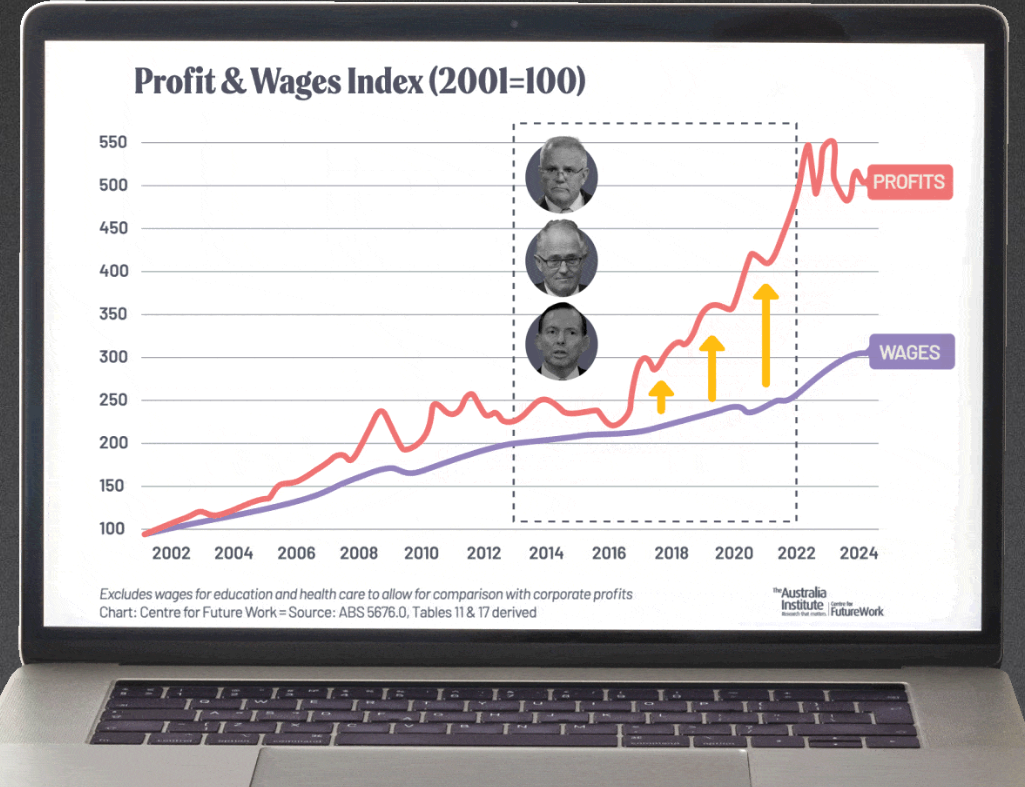When you are the only customer in the hair salon; when your kid’s waitressing shift gets cancelled because the restaurant has no bookings, you start to think, well, maybe the cost of living crisis is real. Or is it? Let’s look at what is really going on and change the narrative before the election campaign officially starts – or sooner.

By Jacquelene Pearson
The official federal election campaign hasn’t even started and the incumbent Albanese Labor Government is stuck in a rhetoric trap that they are going to have to escape quickly if they are to retain power for a second term.
I recently re-watched the film Vice, about the rise and rise of Dick Cheney, former American politician, powerful businessman behind the name Halliburton, and Vice President to George W Bush.
The film contained scenes of focus groups expressing their opinions on the use of terms like “War on Terror” and “Global Warming”. In fact, the George W Bush presidency was the era when Global Warming became the much milder-sounding Climate Change and started to numb us all into complacency.
And now we find ourselves amid a “cost of living crisis” – not only in Australia but in many countries. I have no hard evidence to support this opinion, but it sounds to me like something that has come out of a focus group. Here are some others we’ve heard in recent years: Stop the boats, Make America Great Again, Let’s get Australia back on track. (Maybe that last one didn’t get focused grouped.)
Where’s the context? Where’s the truth? Interest rates have remained at historic lows since 2008. Yes, inflation has been outside the Reserve Bank of Australia’s preferred range in recent years, and the official cash rate has been on an upward trend, but do the current economic settings really justify the cost of living crisis description?
If families are struggling to afford their mortgages, consumer credit bills, utility bills, grocery bills, school fees etc, it’s easy and lazy for the mainstream media, shock jocks, influencers and politicians to explain it away with a simple, dumb-us-all down slogan. “Cost of living crisis” gives us an explanation that helps us sleep at night I suppose.
It is also consequently and directly easy for the public to blame that “cost of living crisis” on the current government and that is what they are doing and are likely to do when they have to vote in the federal election due before the end of May.
I cannot understand why the current government has fallen into this trap – unless, of course, they paid for the focus group. Another possibility is they would insult too many of their fat donors if they told the public the truth about how we got here.
The current “crises” we face are directly attributable to greed – corporate greed mainly but also the individualistic, consumer-centric cultural meal we have been force fed since the times of Thatcher and Reagan.
We now live in a time of post-representative democracy that is a direct result of five decades of economic rationalism. If something cannot be given a dollar value, it is worthless. Thus families build McMansions instead of starting out with smaller, more affordable properties. They replace their cars more regularly via car loans for dirty SUVs and they have been taught, successfully, to live on expensive credit cards and use their mortgages as revolving lines of credit.
We need more affordable housing. That’s been the case since state governments privatised public housing – another example of economic rationalism that has failed.
We need cheaper food. That’s because our two major supermarket brands have screwed down the supply chain for decades and care much more about their shareholders than they do their works and customers.
We need a better public health system and public education system. That’s because both major parties have been over-subsidising private education providers and private health providers at the expense of our public systems for decades.
My one glimmer of hope is the position that has been taken by Australian Unions in their explanation of the “cost of living crisis”.
Their advertisements clearly explain the enormous difference between wages growth (or stagnation) and corporate profits.
Those of us who have been around a few decades remember that, once upon a time, wages increased in line with inflation. There was a time when our industrial relations system even had formal wage indexation.
There was a time when mortgage interest rates were as high as 17%. Imagine that?
There was a time when you could choose to buy your meat from a local butcher and your bread from a local baker whose prices were competitive.
No point longing for the past but let’s look seriously to the future. It’s clearly too late in the Albanese Government’s first term to remind the Cabinet of promises made on changing the rules for campaign funding, lobbying and all the other elements of our modern electoral system that we could call “structurally corrupt”.
So, Prime Minister Albanese, how about calling a spade a spade? When are we going to hear the real story about corporate greed and the failure of our all powerful corporations to be competitive?
When are we going to hear some fighting words about the Coalition’s proposals for another term of wage stagnation and attacks on workers rights? Not to mention their close ties to the coal and gas that are imperilling the planet – our only habitat.
Or is the best that those who care about environmental justice, social justice and good governance, can hope for is a hung parliament?


